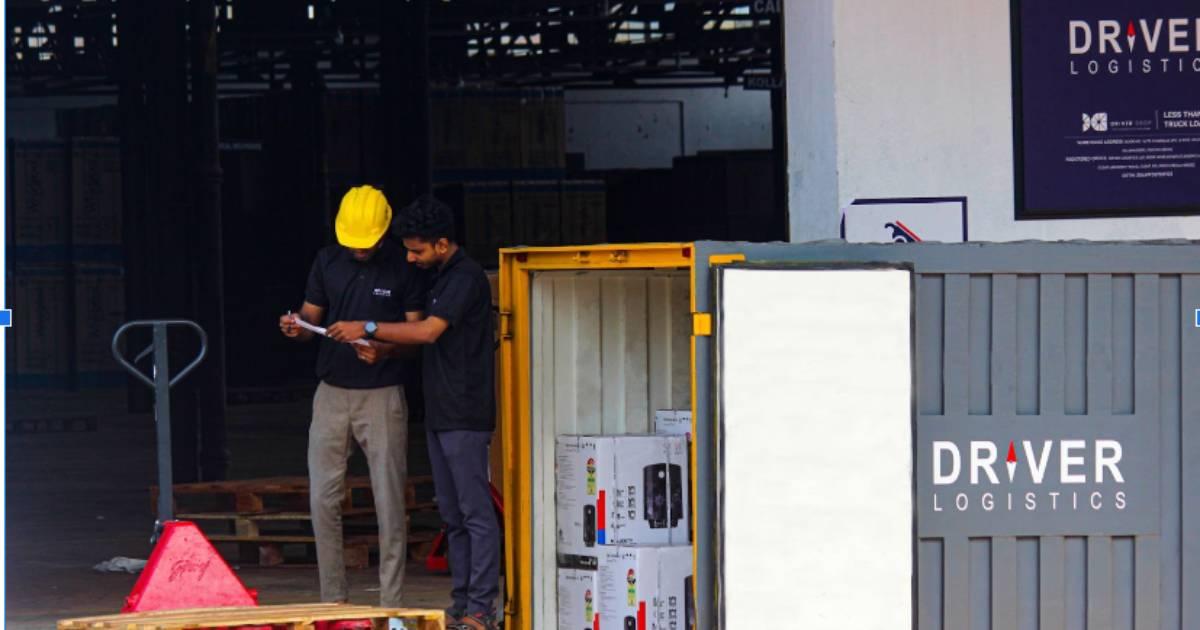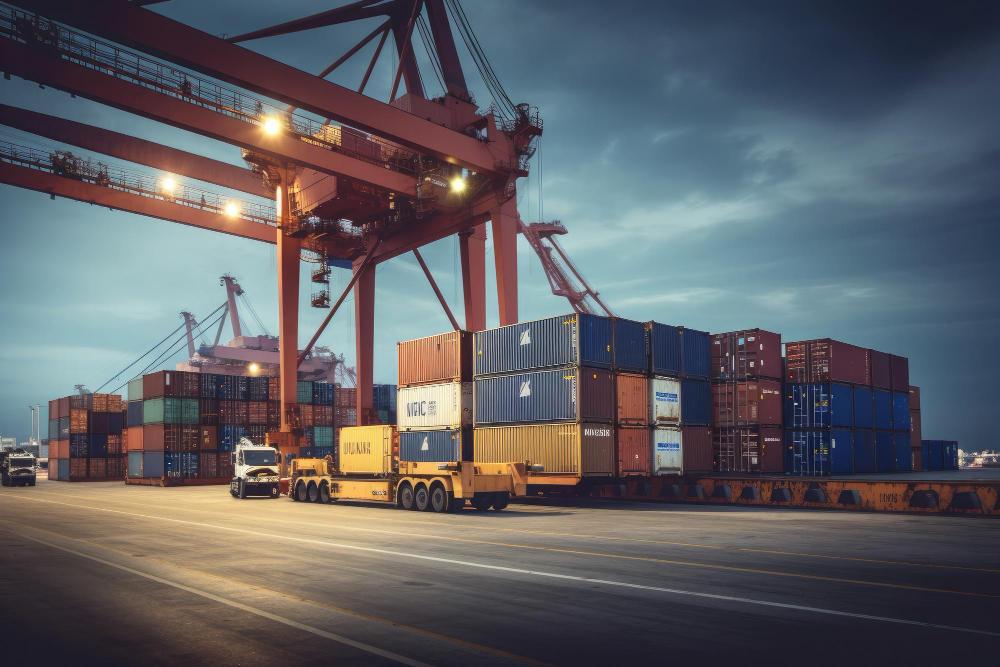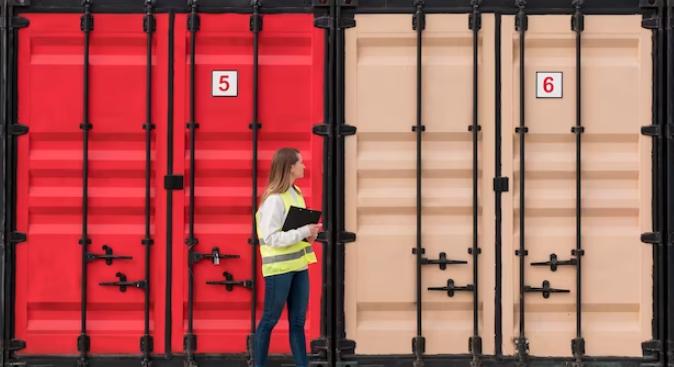
The shipping business is modernising as well, as it embraces the huge possibilities of technology. Smart containers are ushering the sector forward. Smart containers, like smartphones, are intelligent container that ensures enhanced capabilities and opportunities in modifying the logistics industry.
Traditional methods of tracking the movement of shipping containers are inefficient and inaccurate. The information presented is frequently outdated, making it impossible to precisely anticipate the arrival time of containers at the port. This can result in port congestion and delays in discharging cargo for the next step of the supply chain. Data collecting is expensive, prone to inaccuracy, incomplete, and sometimes fraudulent.
Smart Containers may automatically and in real-time relay data throughout transit, providing precise data that allows port operators to better arrange their facilities for inbound goods, storage, and onward distribution.
Smart Containers are the next stage in digitalization, in which every shipping container is connected to one another using real-time Internet of Things technology. Smart cargo boxes can manage, track, and even change the inside conditions of containers remotely, such as temperature control for delicate goods. This guarantees that the temperature of the cargo can be altered if the external environment changes during transit, potentially causing the contents to spoil. All that is required is the installation of internet-connected equipment and networked sensors that gather, compile, and send container data. Smart Container solutions enable supply chain stakeholders to improve their operations by providing door-to-door visibility, AI-based predictive services for determining predictive events, and visibility into the status and environmental condition of the container and its contents at any point along the container's route.
Current Challenges in Containerization
Containers as a technology make it extremely simple to deploy and construct an environment, yet they are stateless. This makes ensuring compliance and security in corporate companies tough. It also creates a difficult challenge, with storage at the heart of it. This is due to three major factors:
- Containers were created with the intention of being stateless. The organisation must construct parallel systems for its databases, instrumentation systems, message queues, and stateful data utilising outdated technology.
- The existing legacy infrastructure does not enable direct access to the container ecosystem and lacks the level of API integration that the container ecosystem requires.
- Security has emerged as a key issue in the container industry, as it has nearly everywhere else. "Containers and container orchestration systems have seen a lot of innovation thus far, but security measures have lagged behind.
Read More: Top 6 Inventory Management strategies to Boost Supply Chain Efficiency

Types of Smart Packaging
Smart packaging refers to packaging that employs unique technologies for purposes other than merely enclosing a product. Here are some of the smart packaging technologies you must know.
Active Packaging
When packaging interacts with the product contents to extend shelf life and maintain quality during storage, this is referred to as active packaging. Moisture-regulating or light-filtering materials can be used in active packaging.
Intelligent Packaging
When sensors are placed in packaging, they detect and monitor quantifiable attributes such as product temperature or humidity levels. Monitoring product freshness using embedded package sensors is one example of intelligent packaging. The expiry of a product in intelligent packaging might be conveyed to the consumer by altering the colour of the package surface.
Connected Packaging
When packaging is created with a link to internet information, it is referred to as connected packaging or connected products technology. While the link can take a user to relevant information in one way, the interaction can also convey data in the other direction. A linked package interaction can provide information such as interaction time, location, and interaction result.
Also Read: On-Demand Warehousing: Top Benefits & Use Cases To Enhance Your Business
Advantages of Smart Containers
Automatic Data Capture
Smart containers automate data collection and handling. In other words, they eliminate the time-consuming procedure of traditional data management, hence decreasing manual errors. Automatic Data Cargo monitoring using smart devices and sensors is one of the most independent and dependable methods of tracing and tracking the movement of products in transit. Smart devices, also known as cargo trackers, container security devices, or container tracking devices, are detachable Internet of Things (IoT) enabled devices with built-in sensors that can be added to any container.
Monitor Cargo Quality
Real-time cargo monitoring using smart containers or smart devices advances the digital era of transportation by making supply chains more transparent, dependable, agile, secure, robust, linked, and sustainable. They remove visibility based on milestones from the supply chain by providing data on the location and condition of products in route. Data is continually collected and monitored by the sensors. They look at factors like temperature, humidity, door status, and even location. This allows you to check on the container and the cargo within. This is especially handy for containers transporting perishable items such as fruits and vegetables.
Optimize investments and reduce costs
Connected technologies are ushering ports into the digital era, boosting efficiency and lowering expenses. Smart containers are capable of managing shipments from anywhere in the world. They also reduce the cost of wastage generated by prolonging the life of a container using technologies and decreasing theft and spoiling of products. They improve company financial control, meaning a direct increase in the performance of the worldwide supply chain. It promotes commerce, decreases losses, and supports the worldwide economic growth of the shipping container business.
Relevant Reading: 7 Key Considerations When Choosing a Warehouse Location for Your 3PL Business

Empowering the Future: Transformative Potential of Smart Containers in Modernizing Shipping
In recent years, cargo transportation standards have changed. In a post-pandemic environment when industry clients are concentrating on the sustainability and effectiveness of each component of their supply chain, digitalisation and big data will become increasingly vital. Of doubt, much of shipping's long-term viability will hinge on its desire to decrease carbon emissions, but digitalization of the whole logistics network will also be critical.
Shipping digitalization is an unavoidable development with the rapid growth of technology. Smart containers are already the way of the future. They combine a variety of technologies, including the Internet of Things (IoT), Big Data, Blockchain, and data pipelines. You increase device autonomy while also streamlining operating and maintenance operations. The necessity to watch cargo movement and anticipate unanticipated scenarios has increased as a result of increased demand for freight transportation. Stakeholders are focusing more on developing and discovering solutions to increase container visibility, security, and quality.